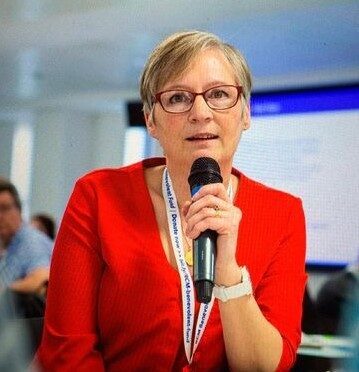As I mentioned in last week’s blog, I presented at the (virtual) International Confederation of Midwives‘ Triennial Congress on June 30th. My subject was identity in midwifery (‘What is a Midwife?’), but the presentation took on a life of its own due to the immense amount of time that has passed since I submitted the original abstract – that was back in the early summer of 2019, and of course I’ve been doing a lot of work with midwives and other maternity care workers since then.
When I wrote the abstract, my subtitle was ‘Competing narratives of identity among clinical and managerial midwives’, and the presentation was due to discuss my doctoral research findings about how clinical and non-clinical midwives narrate the issue of identity quite differently at times, and how this can create tensions within the profession. Here’s an example of that discord in midwifery narratives:
‘I absolutely am a midwife through and through. I am a midwife who recognises her scope of practice, and I mean an enhanced scope of practice – my expertise is no longer the actual delivery of individualised clinical care. My expertise is in the macro-midwifery. And I think that’s one of the things we get hung up on, and why people say they don’t want to be heads of midwifery, because they’re not doing midwifery any more. And actually, they are’ (Susan, former head of midwifery)
‘I realise senior managers were once midwives, and I’m pretty sure originally they went into this for the same kind of reasons as myself, however ‘the needs of the service’ seem to have turned them into the kind of people who think it acceptable to give no thought whatsoever to midwives and staff as actual human beings instead of numbers to meet the needs of this service’ (clinical midwife)
Since I submitted the original abstract, I’ve been lucky enough to spend a couple of years exploring what we might do to build a bridge across those narratives, and how understanding midwifery as a profession that encompasses a range of clinical and non-clinical roles might support the development of a positive professional identity – and in turn, further understanding of the midwifery identity among relevant stakeholder groups. If we’re better able to understand the profession as a group singing from the same hymn sheet (and after all, I really do think we’re generally trying to achieve the same thing, wherever we sit), then other professional groups, Trust and Health Board managers, and of course women and their families, will also gain a new clarity and depth of awareness about the professional identity of midwifery, and how important it is.
So my presentation evolved into something more positive: the subtitle was now ‘Developing shared narratives of identity across the profession’, and I was able to highlight some of the work I’ve been doing to support personal, team and leadership development in midwifery. You’ll know by now that I’m using Insights Discovery as the framework to support the work I’m doing, and it felt good to be able to describe the positive reception that’s had so far. Most of all, it felt great to be moving beyond the findings from my research – after all, the reason I undertook the doctorate was because I wanted to find ways to enhance the midwifery professional identity.
When I completed the doctorate, a friend asked me what was the one thing I would like to do to move the research on. I said that I’d like to get midwives from every part of the profession around a big table, in order to explore and celebrate what we share, rather than what divides us. Why Not gives me the opportunity to do exactly that, and I’m excited to be part of the conversation around a very well-populated metaphorical table.

